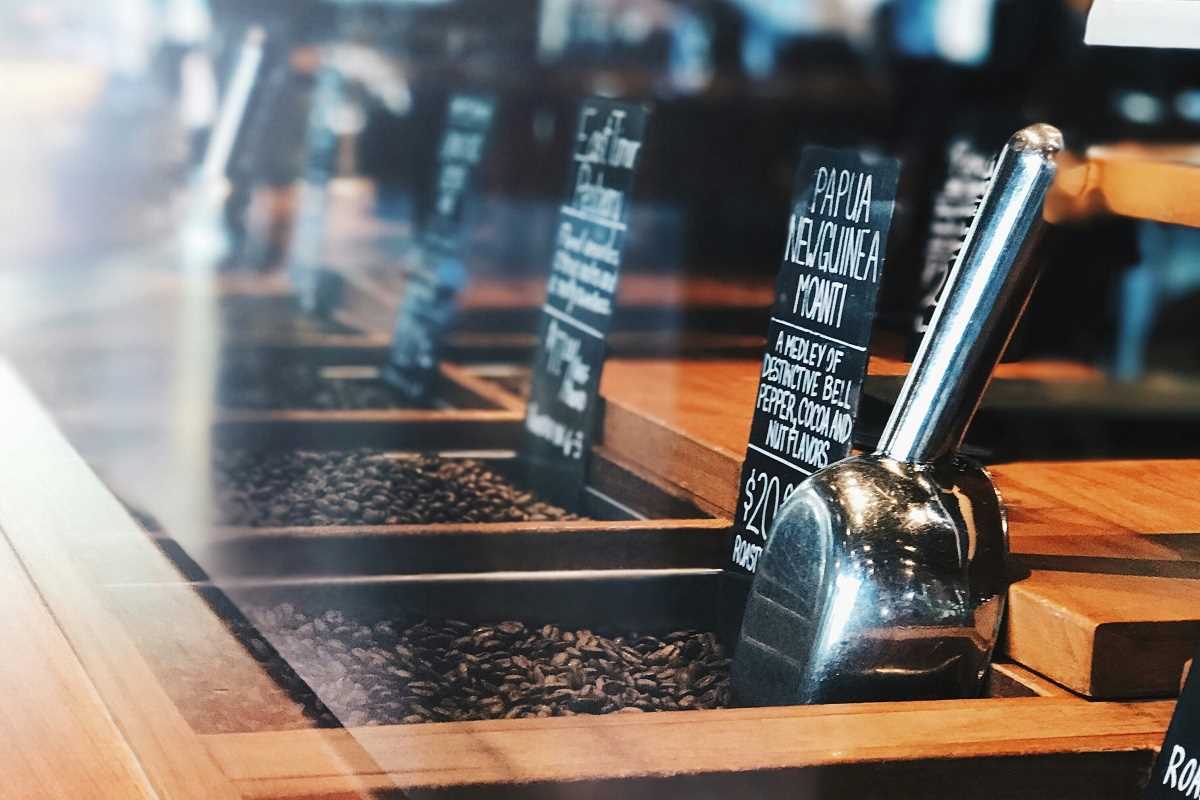Coffee shops have long been community hubs, offering more than just caffeine—they create spaces where connections are made, creativity flows, and comfort is found. But as society grows increasingly aware of the environmental challenges we face, coffee shop owners are asking an important question: How can we enjoy these meaningful moments without harming the planet?
Turning your coffee shop into a green business doesn’t just benefit the environment; it also aligns you with a growing customer base that values sustainability. The good news is that small changes can lead to significant impacts, and running an eco-friendly coffee shop is more achievable than you might think.
This guide explores actionable steps to make your coffee shop greener, helping you reduce your environmental footprint and resonate with today’s conscious consumers.
1. Source Sustainable Coffee Beans
The foundation of any coffee shop is, of course, coffee. Sourcing sustainable beans is one of the most impactful ways to make your business eco-friendlier.
Opt for Certified Coffee
Look for certifications like Fair Trade, Rainforest Alliance, or Organic, which ensure that the coffee you're purchasing is grown and harvested under ethical and environmentally responsible practices.
- Fair Trade: Focuses on equitable pay and treatment for farmers while promoting sustainable agriculture.
- Rainforest Alliance: Ensures that farms protect forests, wildlife, and local communities.
- Organic: Guarantees that the coffee is grown without synthetic fertilizers or harmful chemicals.
Partner With Local Roasters
Buying from local roasters reduces the carbon footprint associated with long-distance transportation and allows you to support small businesses. Build relationships with roasters who prioritize sustainability, and don’t hesitate to promote these partnerships as an integral part of your brand ethos.
2. Rethink Packaging
Single-use waste is a major concern in the coffee industry, with disposable cups, lids, and straws adding up to billions of discarded items each year. Making sustainable packaging a priority can dramatically reduce your environmental impact.
Switch to Compostable Packaging
Replace traditional materials with compostable or biodegradable options for cups, lids, straws, and utensils. Materials like PLA (a plant-based alternative to plastic) and recycled paper break down more easily, leaving a smaller footprint on the planet.
Encourage Reusable Cups
Implementing a bring-your-own-cup initiative is an excellent way to cut down on waste while fostering customer engagement.
- Offer discounts to customers who bring their own reusable cups or mugs. For example, a 10-15% discount or a simple $0.50 incentive per order can encourage adoption.
- Sell branded reusable cups and mugs at your coffee shop. This reduces waste and serves as free advertising every time a customer uses your product.
Eliminate Unnecessary Items
Say goodbye to plastic straws entirely by offering paper, metal, or bamboo alternatives. Similarly, consider phasing out stirrers and plastic sleeves in favor of reusable or biodegradable options.
3. Reduce Energy Consumption
Running a coffee shop requires significant amounts of energy—from espresso machines to lighting and refrigeration. Fortunately, there are ways to optimize efficiency without compromising productivity.
Upgrade to Energy-Efficient Equipment
- Choose Energy Star-rated appliances, including coffee machines, refrigerators, and dishwashers, which use significantly less electricity and water.
- Invest in LED lighting, which consumes up to 75% less energy and lasts 25 times longer than traditional bulbs.
Install Smart Thermostats
Regulate heating and cooling throughout your space by using smart thermostats. These devices adjust automatically based on occupancy or time of day, ensuring that you’re not wasting energy when the shop is empty.
Consider Renewable Energy
Explore switching to renewable energy sources like solar panels or wind energy subscriptions. While there’s an upfront investment, they can save you money over time and drastically lower your carbon footprint.
4. Minimize Food and Beverage Waste
Food and beverage waste is another significant contributor to a coffee shop's environmental impact. Taking steps to minimize this waste will save you money too.
Track Inventory Carefully
- Use point-of-sale (POS) data to track inventory trends and avoid overstocking items that might spoil.
- Rotate perishable goods regularly to ensure older stock is used first.
Donate Unused Food
Partner with local food banks or shelters to donate leftover baked goods or food items that are still safe to eat but no longer fresh enough to sell. Establishing a donation routine is a simple way to reduce waste while supporting your community.
Compost Coffee Grounds and Food Waste
Coffee grounds and food scraps can be composted instead of being sent to landfill. Consider setting up an in-house composting system or partnering with a local composting service. Some shops even offer free coffee grounds to customers for garden use!
5. Implement Recycling Programs
A strong recycling program ensures that materials like paper, glass, and plastic don’t end up in landfills unnecessarily.
Set Up Clear Recycling Stations
Place labeled bins for recyclables, compost, and trash in accessible areas, making it easy for customers and staff to sort waste. Include visuals and clear descriptions to avoid contamination (like food in recycling bins).
Engage Your Customers
Consider running “green challenges” or campaigns to encourage customers to participate in your recycling effort. For example, you could track how much waste is diverted from the landfill over a month and celebrate the achievement publicly.
6. Design a Sustainable Menu
Your menu can also play a role in building an eco-friendly business.
Offer Plant-Based Options
Producing plant-based milk (e.g., oat, almond, or soy) has a much smaller environmental impact compared to cow’s milk. Make it easy for customers to opt for sustainable choices by offering plant-based milk at no extra charge.
Source Local and Seasonal Ingredients
When it comes to baked goods or food offerings, choose ingredients that are grown or produced locally. This reduces the carbon footprint of transportation, while also supporting the local economy.
7. Educate Your Customers
Your sustainability efforts can inspire others to make greener choices in their daily lives.
Promote Your Green Practices
Use signage, social media, and your website to tell customers about the steps you’re taking to reduce environmental impact. For example, create a simple infographic showcasing how many disposable cups you’ve saved thanks to your reusable cup discounts.
Host Eco-Workshops
Offer workshops focused on sustainability, such as how to compost, make eco-friendly cleaning products, or brew zero-waste coffee at home. These events showcase your values and position your shop as a central part of the community.
Successful Sustainable Coffee Models
These businesses are leading the way in combining sustainability with exceptional coffee experiences.
- Blue Bottle Coffee (California) – Focused on zero-waste initiatives and sustainable sourcing.
- Bar Nine (Los Angeles, California) – Transparent pricing and no-waste strategies.
- Cuvée Coffee (Austin, Texas) – Known for its sustainable packaging and direct trade relationships.
- Equator Coffees (San Rafael, California) – A certified B Corporation with a focus on ethical sourcing and environmental stewardship.
- Counter Culture Coffee (Durham, North Carolina) – Committed to sustainability through education and direct trade.
- Intelligentsia Coffee (Chicago, Illinois) – Pioneers in direct trade and environmentally conscious practices.
- Stumptown Coffee Roasters (Portland, Oregon) – Focused on sustainable sourcing and community engagement.
- Verve Coffee Roasters (Santa Cruz, California) – Emphasizes farm-level sustainability and eco-friendly packaging.
- Sustainable Coffee Co. (Seattle, Washington) – Dedicated to zero-waste operations and renewable energy.
- Grounds for Change (Poulsbo, Washington) – A carbon-neutral coffee roaster with a focus on fair trade and organic beans.
Entrepreneurs looking to open or transform their coffee shops can draw inspiration from these leaders in the green coffee movement and make changes that benefit their customers, communities, and the planet.
 (Image via
(Image via





